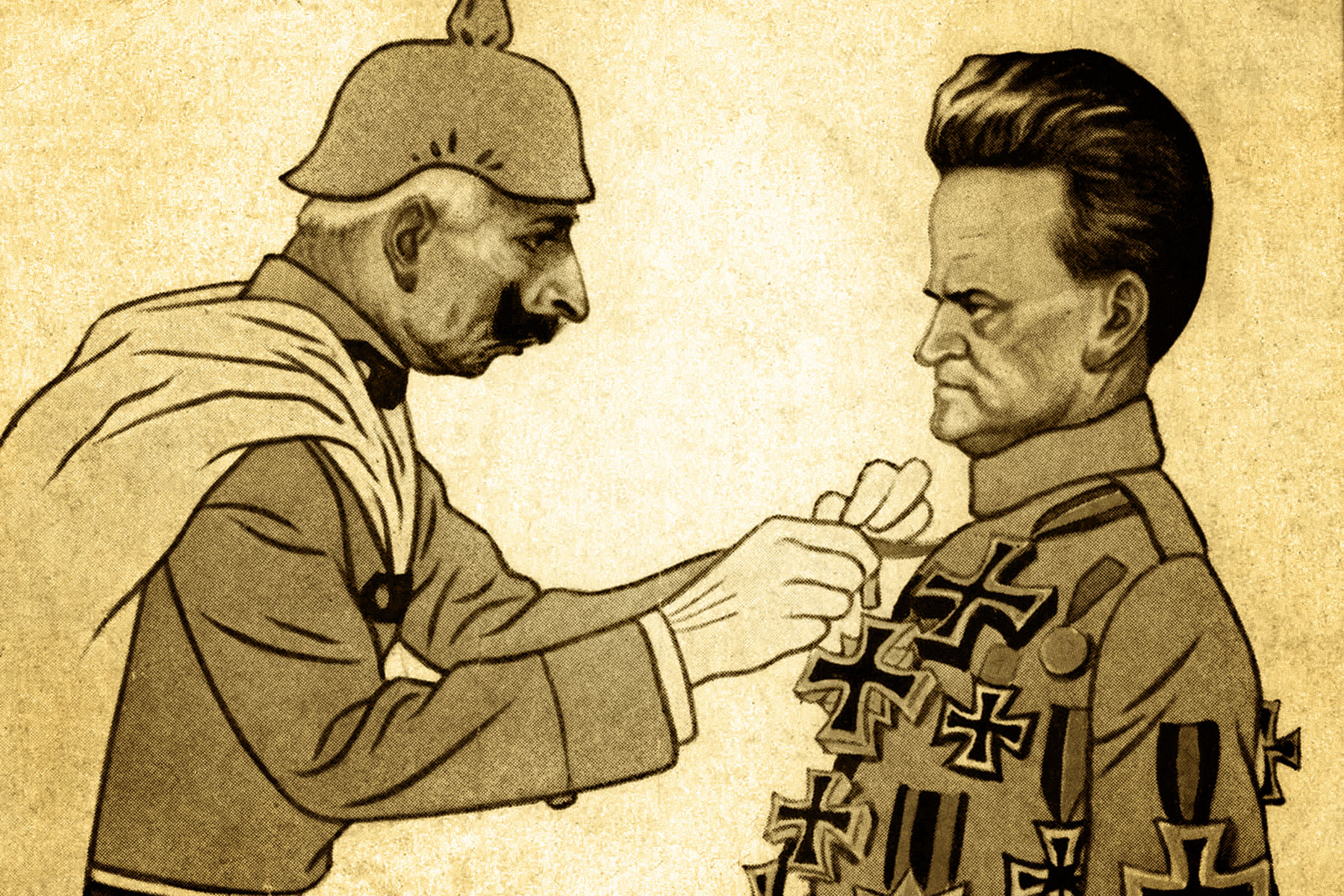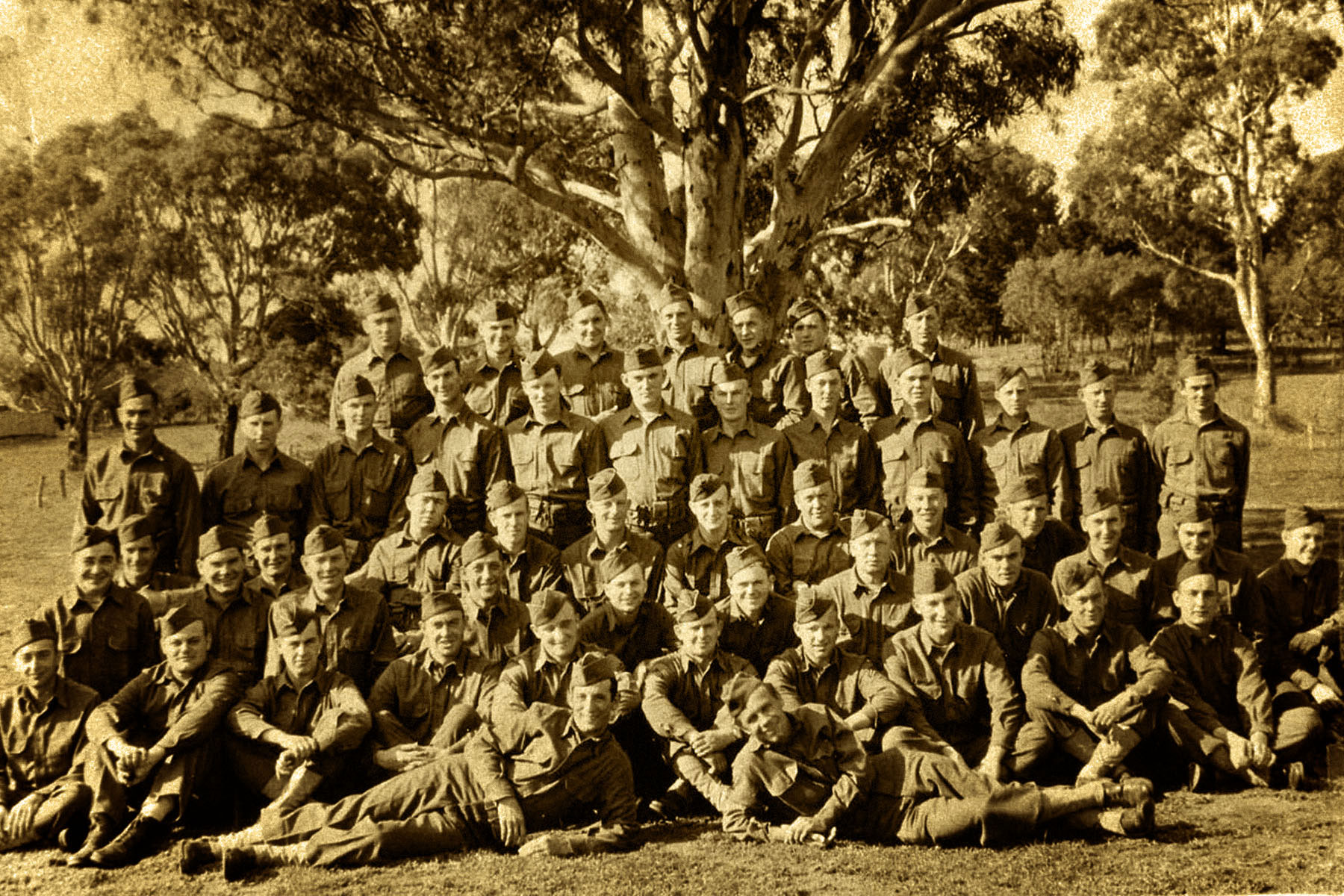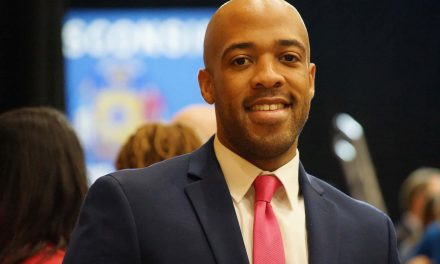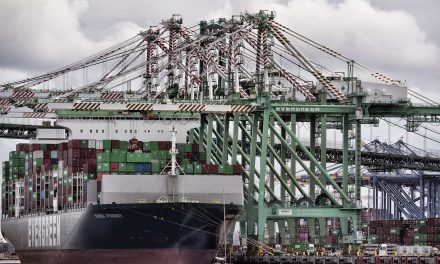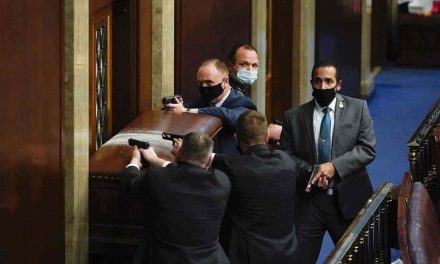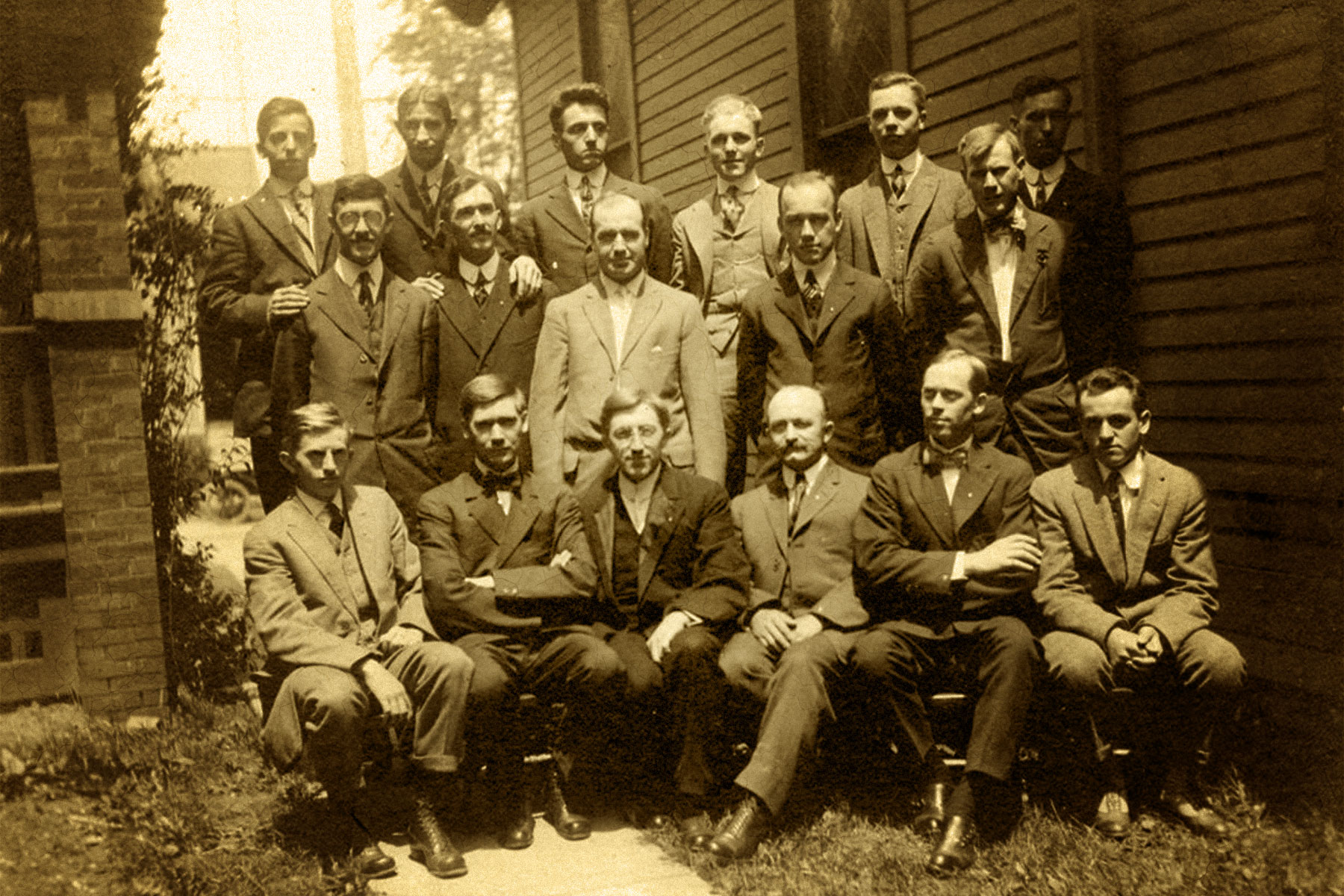
World War I was a defining moment for the United States. Soldiers shipped out to the Western Front, many more people took on unconventional roles at home, and Americans across the board were forced to make compromises in daily life.
Wisconsin stood out in a few ways as the nation entered the war in 1917. It was anecdotally known as the “traitor state,” as nine of the state’s 11 U.S. representatives voted against going to war. One city in particular illustrated how much views on the war could be polarized: Milwaukee.
Wisconsin’s most populous city had long been home to a large population of German immigrants and their descendants, and was one of the nation’s biggest centers of German-American culture. Milwaukee was likewise the home of U.S. citizens known as “hyper-patriots” who made it their mission to force out any trace of German Kultur in the city and force upon their neighbors a love for Uncle Sam.
“The people of Monroe, Wisconsin voted overwhelmingly against going to war. Wisconsin’s prominent Socialist Party rejected participation in the capitalist conflict. Nine of Wisconsin’s 11 U.S. representatives voted against the war. Senator Robert M. La Follette led a filibuster to prevent arming American merchant ships,” said Rick Pifer, a retired director of reference at the Wisconsin Historical Society and author of “The Great War Comes to Wisconsin. “He was one of six senators to vote against the war. He lead opposition to conscription, the sale of bonds to finance the war and repression of free speech. Everywhere they looked, the Wisconsin Loyalty Legion believed they could see ample evidence of disloyalty, sedition and unpatriotic behavior.”
This rise in patriotism, however, came with a dark side. As Leslie Bellais, curator of social history at the Wisconsin Historical Society, noted, hyper-patriots made an aggressive effort to clear the state of its unpatriotic reputation. These hyper-patriots were typically business leaders and other white-collar professionals, and as Bellais explained, they were not people who were used to having their authority questioned.
When they wanted something done, it got done, whether this was pressuring neighbors to buy Liberty Bonds or forcing housewives to sign the Food Pledge, which stated that all “patriotic” men and women would voluntarily restrict their food usage so that the soldiers overseas were always well fed.
Efforts by the hyper-patriots to enforce support for the war were particularly rampant in Milwaukee. Along with being heavily German-American, the city also happened to be governed by a Socialist mayor — it was the home of “sewer socialism” — whose party opposed the war.
“As for the German Americans living in Milwaukee during World War I, they faced a particularly uneasy situation. “If they did not enthusiastically support the war, they were deemed unpatriotic,” Kevin Abing, archivist at the Milwaukee Historical Society. “But if they embraced the Allied cause, they were suspected of being hypocrites.”
For the German-Americans in Milwaukee over the course of the war it was a bitter pill to swallow. For years, they had been praised for being industrious civic and business leaders. German theater, music, and intellectual endeavors were at the pinnacle of the city’s cultural landscape. But the war turned everything upside down.
By 1917, most German Americans in Milwaukee were second- or third-generation Americans and certainly loyal to the U.S., but even those who were natives of Germany recognized their obligation to their adopted homeland.
During World War I, many German Americans in Milwaukee and beyond shed or changed their last names in attempt to free themselves of the often toxic social climate they faced. Within the first four months after the U.S. declaration of war, 250 people reportedly abandoned their German familial names. Additionally, the number of German language teachers in the Milwaukee dropped from 200 to one during the war.
German Americans weren’t the only people feeling pro-war pressure in their communities. Socialists, religious leaders and the Milwaukee labor movement were all subject to harassment and intimidation from the hyper-patriots. Factory owners saw any attempt by workers for improved pay or conditions as pro-German plots to disrupt industrial capacity. Troublemakers were quickly silenced by government agents.
Wisconsin’s “Yankee population,” residents who hailed from New England or New York, were those most likely to become hyper-patriots. They used U.S entry into World War I to reinforce their definitions of patriotism and loyalty and impose them upon other Wisconsinites.
Milwaukee was a center of the socialist movement in the U.S., which elected officials to multiple levels of government. The city was governed by a socialist mayor, Dan Hoan, and was also the home to one of the Socialist Party of America’s heaviest hitter, Victor Berger. The latter is known for being the first socialist elected to the U.S. Congress. In February 1918, Berger was indicted by the federal government and convicted on charges of treason and sedition.
One of the most outspoken hyper-patriots of Milwaukee was Wheeler Bloodgood, a lawyer from Dutch New York. In March 1917, Bloodgood founded the Wisconsin Defense League — whose name was later changed to the Wisconsin Loyalty Legion — in attempt to dispel any notion that Wisconsin was a “hotbed for sedition and disloyalty.” Bloodgood famously asked the federal government to impose martial law in Milwaukee if Hoan won the April 1918 election. Bloodgood’s demands, however, were not met.
Wisconsin Historical Society and Milwaukee Public Library
Originally published on WisContext.org, which produced the article in a partnership between Wisconsin Public Radio, Wisconsin Public Television and Cooperative Extension.

